The Canterbury Tales Blu-ray Movie
HomeThe Canterbury Tales Blu-ray Movie 
I racconti di CanterburyBFI Video | 1972 | 111 min | Rated BBFC: 15 | Apr 27, 2009
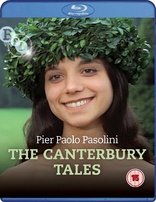
Movie rating
6.6 | / 10 |
Blu-ray rating
| Users | 4.0 | |
| Reviewer | 3.0 | |
| Overall | 3.2 |
Overview
The Canterbury Tales (1972)
An adaptation of eight of the 24 stories by Geoffrey Chaucer, recreating the medieval era and providing a look at some of the social, sexual, and religious standards of 14th century England.
Starring: Hugh Griffith, Laura Betti, Ninetto Davoli, Tom Baker (I), Alan WebbDirector: Pier Paolo Pasolini
| Foreign | Uncertain |
| Drama | Uncertain |
| Romance | Uncertain |
| Erotic | Uncertain |
| History | Uncertain |
| Comedy | Uncertain |
Specifications
Video
Video codec: MPEG-4 AVC
Video resolution: 1080p
Aspect ratio: 1.85:1
Original aspect ratio: 1.85:1
Audio
Italian: LPCM 2.0 (48kHz, 24-bit)
English: LPCM 2.0 Mono (48kHz, 24-bit)
Subtitles
English, English SDH
Discs
50GB Blu-ray Disc
Single disc (1 BD)
Playback
Region B (locked)
Review
Rating summary
| Movie | 2.0 | |
| Video | 4.0 | |
| Audio | 3.0 | |
| Extras | 3.5 | |
| Overall | 3.0 |
The Canterbury Tales Blu-ray Movie Review
Reviewed by Dr. Svet Atanasov April 26, 2009BFI (British Film Institute) introduce the second installment in Pier Paolo Pasolini's Trilogy of Life, "The Canterbury Tales" (1972). The film has been newly transferred in High-Definition using the original 35mm negative film elements. Alberto Farina and David Gregory’s documentary “Pasolini and the Italian Genre Film” is offered as a supplemental feature. Region-B "locked.
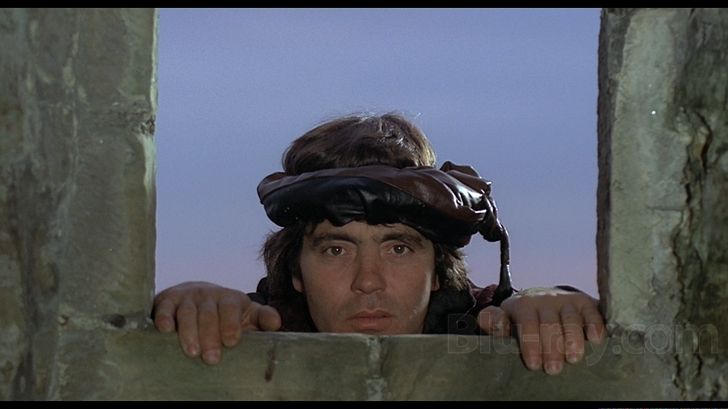
Voyeurism is a constant theme in The Canterbury Tales
The Canterbury Tales, the second installment in Pier Paolo Pasolini’s Trilogy of Life, is based on the fourteenth-century stories of English poet and philosopher Geoffrey Chaucer. Once again, due to its explicit nature, this was a film that spurred an enormous amount of controversy in Italy that led to its eventual banning.
The majority of the stories in The Canterbury Tales focus on the same type of sexual behavior witnessed in The Decameron. However, while The Decameron was highly regarded by scholars and film critics for its masterful interpretation of Boccaccio’s texts, The Canterbury Tales was never praised for its truthful replication of the unique qualities Chaucer’s writings convey.
Some critics have speculated that one of the key reasons why The Canterbury Tales was not as successful as The Decameron has to do with the fact that Pasolini was not as familiar with Chaucer’s writings as he was with Boccaccio’s. In addition to the notable omission of the pilgrimage - a crucial theme in Chaucer’s writings - this is particularly obvious in the illogical order of the stories he favored for the final version of The Canterbury Tales.
Aside from the closing scene – a fascinating journey to Hell where we see the Devil punishing all sorts of sinful friars – there are hardly any litigious overtones in the film. Whether because the main characters were played by non-professional actors or because Pasolini simply did not seek to provoke the audience, The Canterbury Tales lacks the subversive punch found in The Decameron and Arabian Nights.
The Canterbury Tales is a grounded film that does not self-destruct because of the abundance of explicit imagery it contains. Its humor isn’t degrading either, though there are a few sequences where Pasolini comes dangerously close to ridiculing the different protagonists and their vices simply for the sake of doing so.
The largely English-speaking cast (Hugh Griffith, Tom Baker, Nicholas Smith, Jenny Runacre) was dubbed in Italian with a varying degree of success. Throughout The Canterbury Tales there are many scenes where poor lip-syncing affects the overall flow of the narrative. As a result, at least as far as this reviewer is concerned, much of the zesty humor becomes quite ineffective.
Pasolini’s preferred Italian actors – Franco Citti (as the Devil), Ninetto Davoli (Perkin), Laura Betti (The Wife from Bath) – play characters that are just as mischievous and deliciously perverse as the ones in The Decameron. Josephine Chaplin, Charlie Chaplin's daughter, also has a small cameo in the film (playing the promiscuous May).
The Canterbury Tales reunited producer Alberto Grimaldi (Fellini - Satyricon), cinematographer Tonino Delli Colli (Salo, or the 120 Days of Sodom) and legendary composer Ennio Morricone (The Good, the Bad and the Ugly).
The Canterbury Tales Blu-ray Movie, Video Quality 

Presented in an aspect ratio of 1.85:1, encoded with MPEG-4 AVC and granted a 1080p transfer, Pier Paolo Pasolini's The Canterbury Tales arrives on Blu-ray courtesy of UK-based distributors BFI (British Film Institute).
The Canterbury Tales has been newly transferred in High-Definition using the original 35mm negative film elements and, as expected, the results are quite good. In fact, the film looks substantially better than The Decameron – contrast is very convincing, clarity and detail pleasing and the color-scheme certainly the best I have ever seen. Furthermore, a lot of the indoor scenes lack the heavy macroblocking patterns that were evident on the old UK SDVD release. Occasionally, I was still able to spot a bit of heavier than normal lining around the edges, but, overall, the Blu-ray release certainly allows one to experience The Canterbury Tales in an entirely new way. Lastly, aside from a few minor specs that I noticed in the very beginning of the film, the rest of the transfer looks surprisingly healthy. I would also like to point out that when blown through a digital projector The Canterbury Tales remains pleasingly stable. (Note: This is a Region-B "locked" release which you won't be able to play on your Region-A PS3 or SA. In order to view this disc, you have to have a native Region-B or Region-Free player).
The Canterbury Tales Blu-ray Movie, Audio Quality 
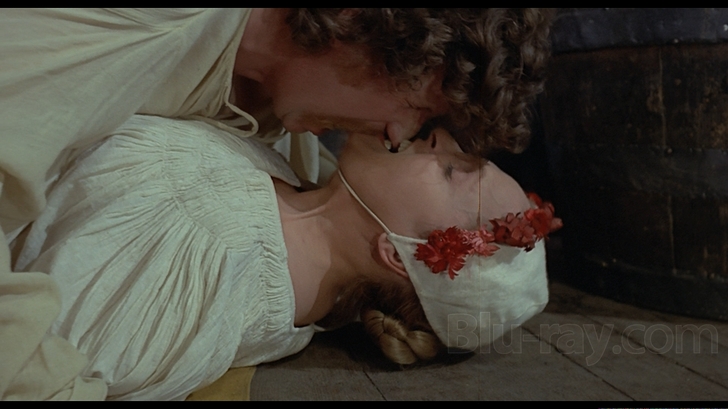
There are two audio tracks on this Blu-ray disc: the original Italian LPCM 2.0 track and an English LPCM 2.0 dub (available as an extra). As it was the case with the audio treatment for The Decameron, the original Italian track appears to be in a fairly good condition. The dialog is mostly clear and very easy to follow, and I did not hear any disturbing pops, cracks, or hissings to report here. I did detect, however, a few balance fluctuations, which I must assume are inherited from the master the BFI were given to work with. This being said, you should be able to notice that there are more than a few dub overlappings as well (please keep in mind that these are perfectly normal as post-production dubbing was typical for Italian cinema at the time). As far as the English dub is concerned, once again, I strongly recommend that you opt for the original Italian track, given that the alternative track is rather bland and ineffective (even though the majority of the actors spoke their lines in English). Optional English and English HOH subtitles have been provided for the main feature.
The Canterbury Tales Blu-ray Movie, Special Features and Extras 
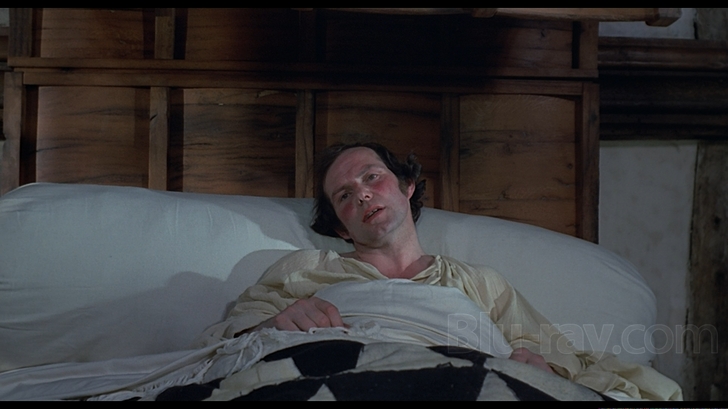
The Canterbury Tales arrives with a lovely 18-page booklet containing a number of informative essays - "The Trilogy of Life" by Sam Rohdie (a scholar and author of The Passion of Pier Paolo Pasolini), "The Canterbury Tale" by Roger Clarke (an author and critic), "The Canterbury Tales reviewed" by Nigel Andrews (originally published in Monthly Film Bulletin in March, 1972), and "Pier Paolo Pasolini (1922-1975)" by Geoffrey Nowell-Smith (originally published in the Oxford History of World Cinema).
In addition to the original theatrical trailer for the film, on the actual Blu-ray disc you will find Alberto Farina and David Gregory's documentary Pasolini and the Italian Genre Film. In it, Pasolini's producer Alfredo Bini, writer and critic Serafino Murri, Paolo Bianchini (Decameron 4), and producer Gabriele Crisanti (Decameron 2 & 4 and Canterbury Tales 2) talk about their relationship with the controversial director as well as his impact on the Italian film industry during the 1960-70s (1080i).
The Canterbury Tales Blu-ray Movie, Overall Score and Recommendation 
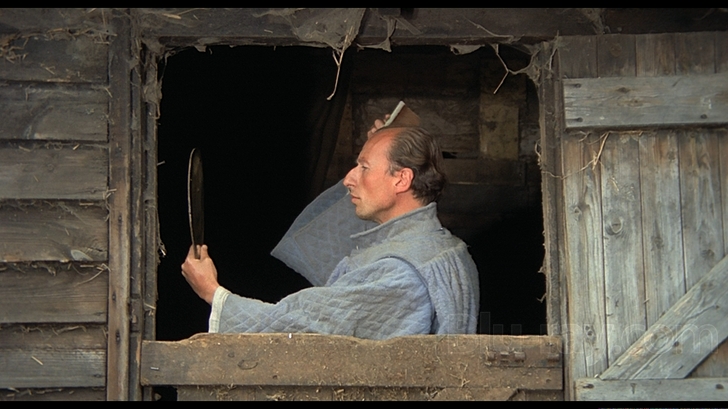
Some may find Pasolini's The Canterbury Tales wildly entertaining. After all, this is the most explicit of the three films in the Trilogy of Life where the humor is borderline offensive. Its visual style is also quite convincing, particularly in terms of period detail. Yet, thematically, The Canterbury Tales lacks most, if not all, of the key qualities Pasolini's work is known for. Whether this has to do with the fact that the Italian director wasn't as well versed in Chaucer's writings as he was in Boccaccio's will probably be debated for years to come. I personally have always regarded the Canterbury Tales as Pasolini's least impressive film as well as the one that most successfully detracts from his controversial legacy. The Blu-ray disc herein reviewed, courtesy of British distributors BFI, is of very good quality. In fact, out of the three films in the Trilogy of Life, The Canterbury Tales boasts the most technically pleasing transfer. Indeed, the improvements the 1080p transfer offers in terms of detail, clarity and color are undeniable (frankly, there is absolutely no basis for comparison between the old UK SDVD and this new Blu-ray release). Unfortunately, those of you residing in Region-A territories won't able to take advantage of this release as it is Region-B "locked".
Similar titles
Similar titles you might also like

The Decameron
Il Decameron
1971

Arabian Nights
Il fiore delle mille e una notte
1974

Certified Copy
Copie conforme
2010

Identification of a Woman
Identificazione di una donna
1982

The White Sheik
Lo sceicco bianco / Vintage World Cinema
1952

Three Colours: White
Trois couleurs: Blanc
1994

The Princess of Montpensier
La Princesse de Montpensier
2010

Portrait of a Lady on Fire
Portrait de la jeune fille en feu
2019

Yesterday, Today and Tomorrow
Ieri, oggi, domani
1963

L' Eclisse
1962

The Tree of Wooden Clogs
L'albero degli zoccoli / Arrow Academy
1978

La Règle du Jeu
The Rules of the Game
1939

Malena
2000

Marriage Italian Style
Matrimonio all'italiana
1964

A Lesson in Love
En lektion i kärlek
1954

Salò, or the 120 Days of Sodom
Salò o le 120 giornate di Sodoma
1975

Le Amiche
The Girlfriends / Masters of Cinema
1955

Senso
The Wanton Countess | Limited Edition
1954

Nights of Cabiria
Le notti di Cabiria / Vintage World Cinema
1957

Red Desert
Il deserto rosso
1964
